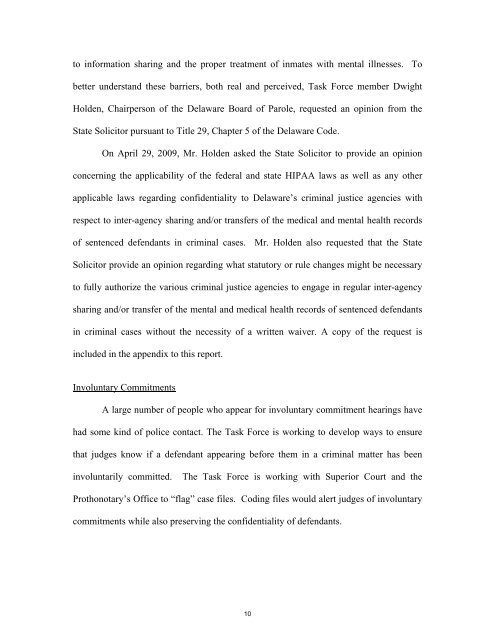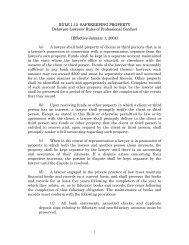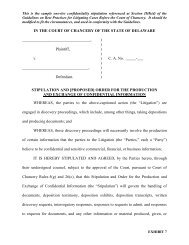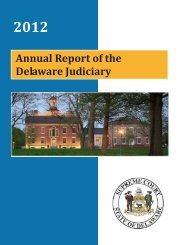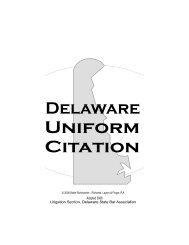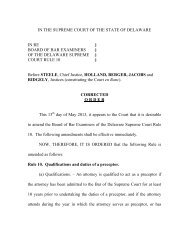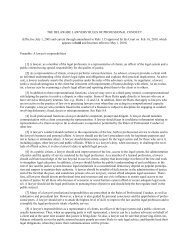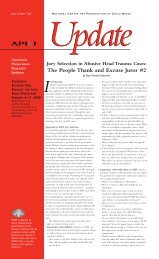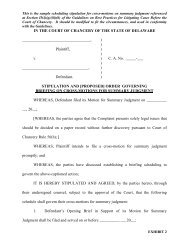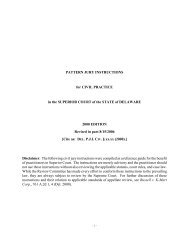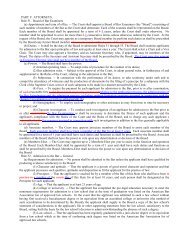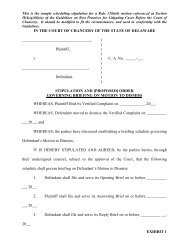Delaware Supreme Court Task Force on Criminal Justice and ...
Delaware Supreme Court Task Force on Criminal Justice and ...
Delaware Supreme Court Task Force on Criminal Justice and ...
- No tags were found...
Create successful ePaper yourself
Turn your PDF publications into a flip-book with our unique Google optimized e-Paper software.
to informati<strong>on</strong> sharing <strong>and</strong> the proper treatment of inmates with mental illnesses. Tobetter underst<strong>and</strong> these barriers, both real <strong>and</strong> perceived, <str<strong>on</strong>g>Task</str<strong>on</strong>g> <str<strong>on</strong>g>Force</str<strong>on</strong>g> member DwightHolden, Chairpers<strong>on</strong> of the <str<strong>on</strong>g>Delaware</str<strong>on</strong>g> Board of Parole, requested an opini<strong>on</strong> from theState Solicitor pursuant to Title 29, Chapter 5 of the <str<strong>on</strong>g>Delaware</str<strong>on</strong>g> Code.On April 29, 2009, Mr. Holden asked the State Solicitor to provide an opini<strong>on</strong>c<strong>on</strong>cerning the applicability of the federal <strong>and</strong> state HIPAA laws as well as any otherapplicable laws regarding c<strong>on</strong>fidentiality to <str<strong>on</strong>g>Delaware</str<strong>on</strong>g>’s criminal justice agencies withrespect to inter-agency sharing <strong>and</strong>/or transfers of the medical <strong>and</strong> mental health recordsof sentenced defendants in criminal cases. Mr. Holden also requested that the StateSolicitor provide an opini<strong>on</strong> regarding what statutory or rule changes might be necessaryto fully authorize the various criminal justice agencies to engage in regular inter-agencysharing <strong>and</strong>/or transfer of the mental <strong>and</strong> medical health records of sentenced defendantsin criminal cases without the necessity of a written waiver. A copy of the request isincluded in the appendix to this report.Involuntary CommitmentsA large number of people who appear for involuntary commitment hearings havehad some kind of police c<strong>on</strong>tact. The <str<strong>on</strong>g>Task</str<strong>on</strong>g> <str<strong>on</strong>g>Force</str<strong>on</strong>g> is working to develop ways to ensurethat judges know if a defendant appearing before them in a criminal matter has beeninvoluntarily committed. The <str<strong>on</strong>g>Task</str<strong>on</strong>g> <str<strong>on</strong>g>Force</str<strong>on</strong>g> is working with Superior <str<strong>on</strong>g>Court</str<strong>on</strong>g> <strong>and</strong> theProth<strong>on</strong>otary’s Office to “flag” case files. Coding files would alert judges of involuntarycommitments while also preserving the c<strong>on</strong>fidentiality of defendants.10


